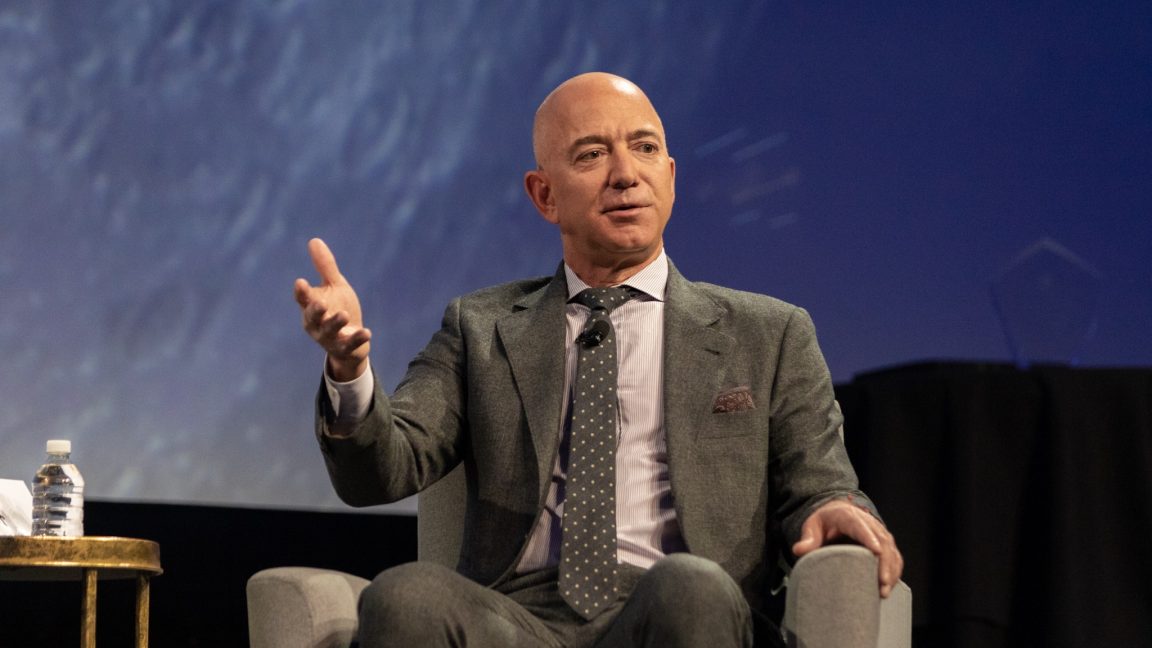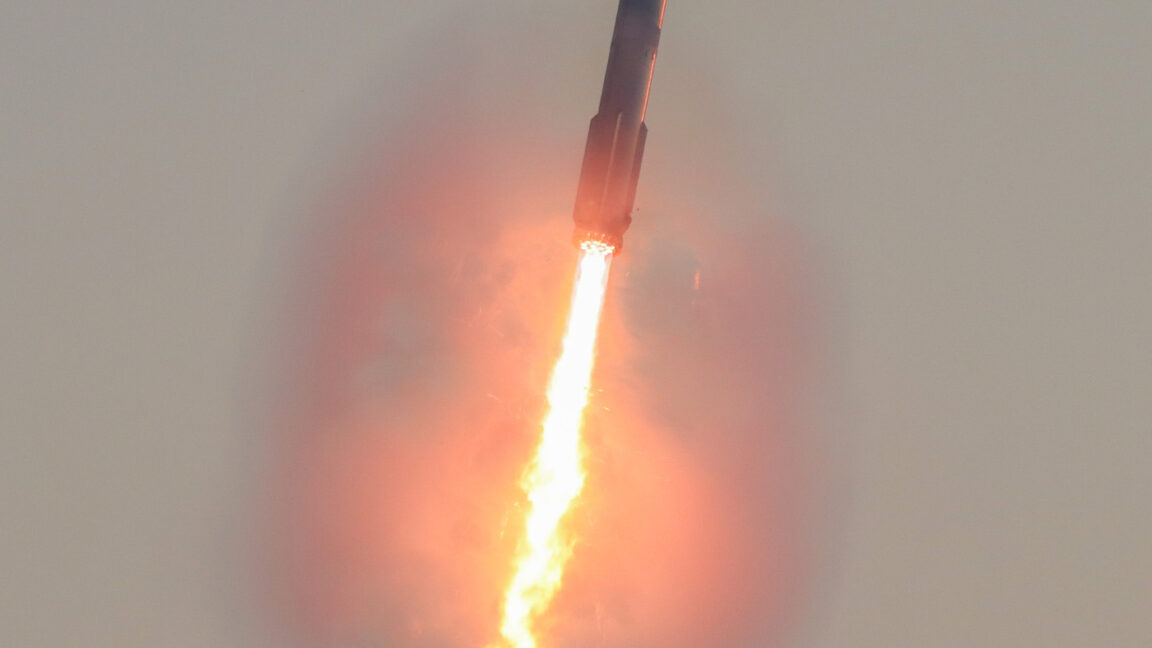On Tuesday, Blue Origin founder Jeff Bezos announced that his company has a plan for NASA to return to the Moon by 2024. The company has assembled a proven team of US companies to design and build elements of a lunar landing system that will take humans from a high lunar orbit down to the Moon's surface.
"This is a national team for a national priority," said Bezos, announcing a partnership with three other companies—Lockheed Martin, Northrop Grumman, and Draper—to support NASA's Artemis Program.
Blue Origin will serve as the prime contractor, building the Blue Moon lunar lander as the "descent element" of the system to carry the mission down to the lunar surface. Bezos' company will also lead program management, systems engineering, and safety and mission assurance. Lockheed Martin will develop a reusable "ascent element" and lead crewed flight operations. Northrop Grumman will build the "transfer element," and Draper will lead descent guidance and provide flight avionics.
“We value Blue Origin’s thoughtful approach to developing human-rated flight systems, and are thrilled to be part of a national team with this mix of innovation and experience," said Rick Ambrose, executive vice president of Lockheed Martin Space, in a statement. "We look forward to safely and sustainably returning our nation to the surface of the Moon by 2024.”
This appears to be a brilliantly calculated plan to win political support, and funding from NASA, as it considers proposals from contractors for a "human landing system" to deliver astronauts to the Moon from a Lunar Gateway. The proposed three-part landing system fits nicely within the framework set by NASA, and is sized to be launched on commercial rockets—likely United Launch Alliance's Vulcan booster and Blue Origin's New Glenn rocket.
The entire plan seems designed to give NASA a plug-and-play approach to the lunar landing program. (It is another question entirely whether NASA will get the funding it needs for the Artemis Program.)
Moreover, Bezos has built a partnership between dynamic new companies that are largely privately funded, such as Blue Origin, and aerospace blue-blood firms, such as Lockheed Martin. NASA will value such a mix of new and old companies.
It will be interesting to see what other industry providers put forward. Lockheed's long-time competitor, Boeing, has not announced any specific lander plans. And SpaceX, which has the only rocket currently in service that can deliver large payloads to the Moon, similarly has not announced how it will respond to NASA's call for lunar landers.


